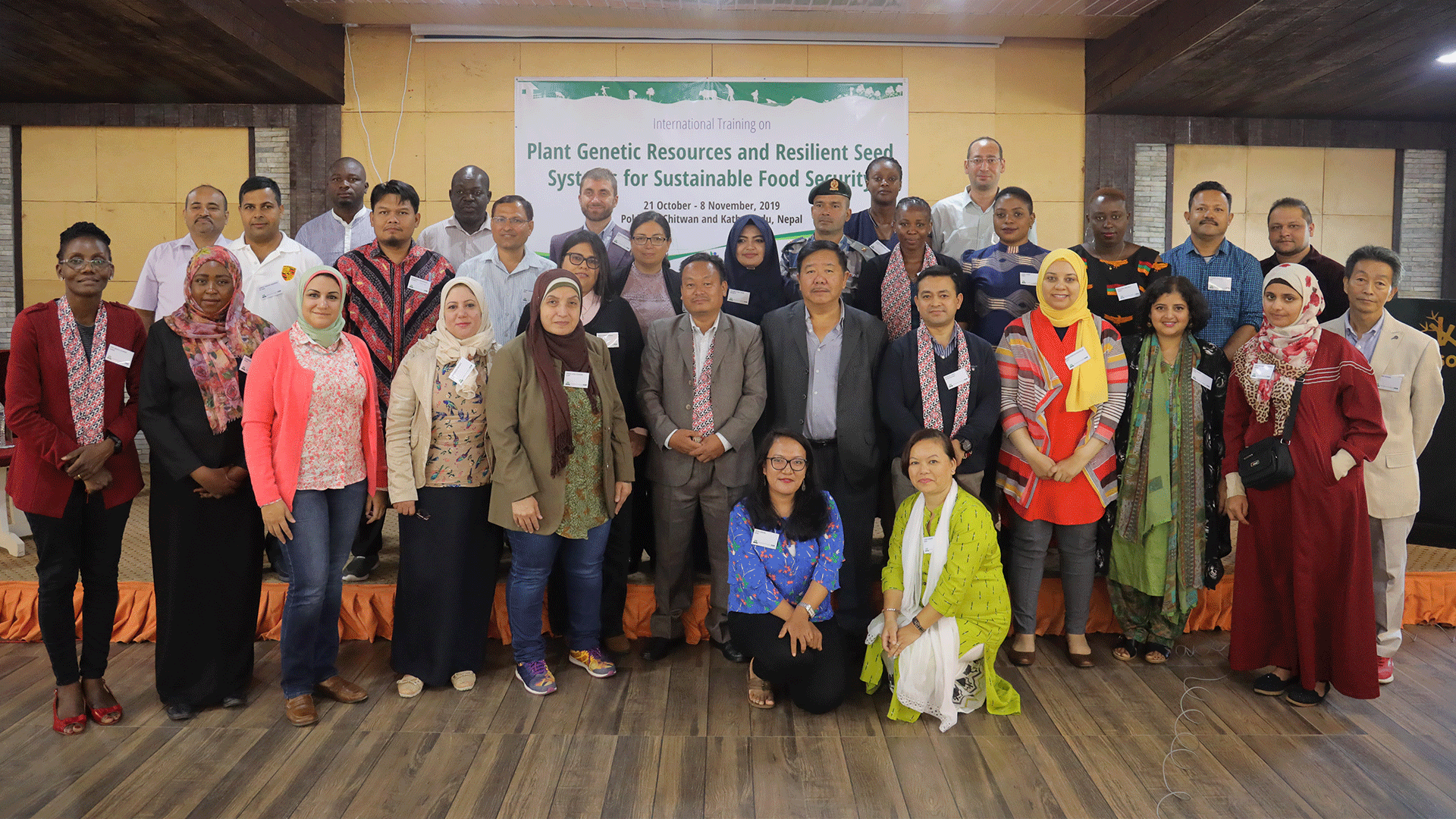Honorable Minister Mr. Lekha Bahadur Thapa Magar, Ministry of Land Management, Cooperative and Poverty Alleviation, Gandaki Province of Nepal, inaugurated the third International Course on ‘Plant Genetic Resources and Resilient Seed Systems for Sustainable Food Security’ on 21 October 2019 in Pokhara, Nepal. The three-week short course is organized by Wageningen Centre for Development Innovation (WCDI), the Netherlands in partnership with LI-BIRD, GrowInnova, and Bioversity International, and has a participation of 22 international professionals from 17 different countries of Asia, Africa, Europe and South America. The main objective of this course is to introduce best practices and methodologies to promote safeguarding and sustainable use of agrobiodiversity and promoting resilient seed systems in farming systems that are facing climatic impact to secure sustainable food security.
Speaking at the opening of the programme, Dr. Balaram Thapa, Executive Director of LI-BIRD, welcomed all the participants and wished for their meaningful stay in Nepal and the successful completion of the course. He hoped that the course will be useful and provide insight for practical application. Similarly, the Honorable Minister Mr. Lekha Bahadur Thapa Magar welcomed the participants to Pokhara ‘Nepal’s biggest Metropolitan City which is also the tourism capital.’ He emphasized the challenge of the world to develop current agriculture so that it could feed about 9 billion population in 2050. He added, ‘For that, we need to develop resilient seed systems for sustainable food security.’ He thanked LI-BIRD for making its research and development activities more participatory and transparent and in alignment with Nepal’s 20-year agriculture development strategy. He also added that recently 12 point declaration paper has been developed by Gandaki Province for ‘biodiversity conservation and climate change adaptation.’ While concluding his remarks, he wished participants for the successful completion of the training and hoped that the course will be helpful for enhancing their knowledge and skills.
During the opening, Mr. Bharat Bhandari, Programme Development Director of LI-BIRD, provided an overview of LI-BIRD, while Ms. Mira Dhakal, Administrative and HR Manager of LI-BIRD, gave brief information about the Pokhara city.

Further welcoming the participants and introducing the course, Dr. Abishkar Subedi (senior advisor at WCDI), the course coordinator, emphasized the decline in the yields of major crops across Africa and South Asia which is affecting the agriculture production system. He emphasized the need to mobilize common efforts and share knowledge to promote the potential of crop genetic resources and develop a more resilient seed system to cater the needs of smallholder farmers and contribute to global food and nutrition security. Emphasizing the importance of this course in this context, he remarked, “This training is one of the platforms where ‘local experience and realities’ can be exchanged at the global level.” He also expressed on behalf of WCDI to continue this training course in the future. He further added, “We ask you to take the training not only for learning or sharing but also for developing the network to strengthen your capacity and collaboration for future.’
The course also comprises two days field trip to Pokhara sites and a three-day field trip to Nawalparasi and Chitwan where participants can observe the practical implementation on the use of Plant Genetic Resources and Seed Systems by the farmers in Nepal. The course will conclude with a visit to World Heritage Sites in Kathmandu Valley.

